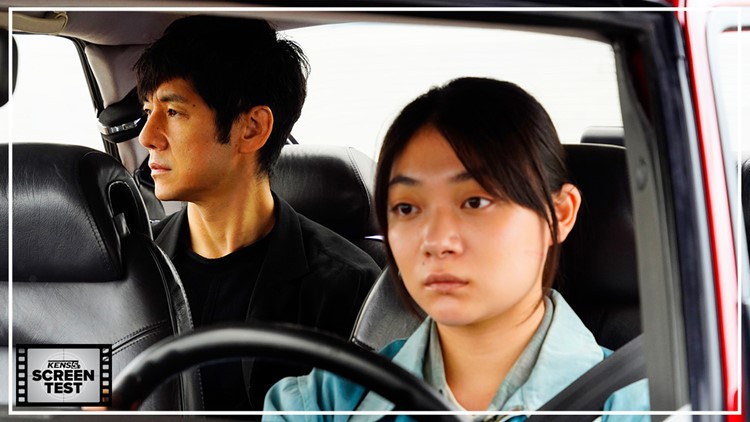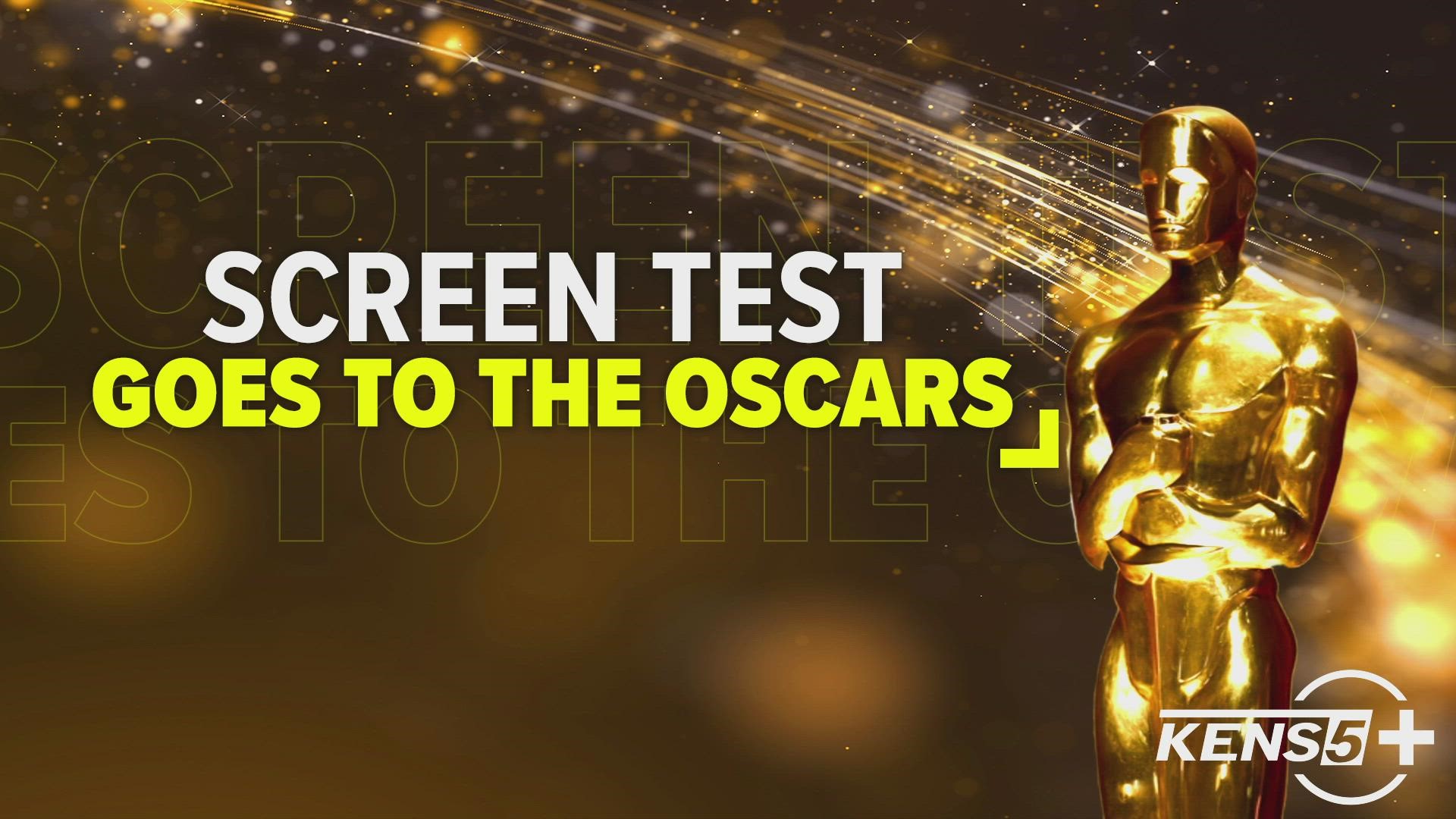The act of driving is among our most routine, and also one of our most paradoxical—the idea of moving forward in one respect while remaining completely stationary in another. You may have thought something similar at one point. Maybe you’ve even thought about it while behind the wheel, jolting your subconscious awake from the neutral state of an activity demanding our full attention. It’s that very paradox that makes Japanese writer-director Ryûsuke Hamaguchi’s decision to center driving in his marvelously intelligent film, “Drive My Car,” potent, poignant and rather perfect. In this epic of wandering souls, seeing what’s ahead means recognizing the road you’ve been traveling over this whole time.
It’s a character study of the most forthright kind. That is to say, the attentive viewer will find themselves closely studying the characters of this movie; the looks they trade when conversations take confessional turns, the hints of reaction when a revelation is reached, the slow chipping away of formality to yield unexpected understanding underneath. There’s no shortage of places from which to continue creating our analysis, even if “Drive My Car” isn’t a movie you analyze so much as you absorb.
Hamaguchi’s main stage for this study: a cherry-red Saab 900. His main subjects: Hidetoshi Nishijama’s Yûsuke, a seasoned theater veteran directing a multilingual adaptation of Chekhov’s “Uncle Vanya,” and Tôko Miura’s Misaki, the quietly attentive young woman hired to drive Yûsuke during his residency despite initial pushback. The relationship is one rooted in a place of assumed contrast – he dressed in a thespian’s flowing black wardrobe, she in a worn coat and baseball cap – but which takes course towards more mutual destinations along fateful trajectories and Yûsuke’s unusual habit of listening to cassette tapes of recorded “Uncle Vanya” lines.
It makes for a ghostly experience watching Yûsuke rehearse that dialogue on long daily commutes, ostensibly talking to no one but himself, Misaki, the winding road and the implication that the female voice on these cassettes, belonging to his wife, Oto (Reika Kirishima), are all he has left of her after a sudden death from a brain hemorrhage two years prior. But why continue now, when he’s no longer acting the part for fear of how Chekhov’s language “drags out the real you,” as he puts it at one point? Is there something in Ota’s immortalized voice that allows him refuge from the grief, some security from the knowledge that his wife had things she never divulged to him, despite the intimate moments we observe between them in the first act? What, if anything, does he hope to find in her voice that he never noticed before?
Those are just some of the questions propelling “Drive My Car,” a movie that effortlessly conveys a certain magnitude of stakes that we tend to reserve for our biggest blockbusters. Move past the initial suspicion that a theater of multiple languages is a perhaps too-obvious conceit in a story about human connection, and it becomes a profound reflection of how the most familiar may have been the most mysterious all along.
But there’s a touch of whimsy to it all, a cheekiness that stretches from a humorously curated soundscape to the way Hamaguchi’s screenplay, adapted from a Haruki Murakami short story, matches its cruise-control speed to the monologues of the play at the film’s narrative core. Art and life are shown to be interchangeable in “Drive My Car,” and time affects how we see both.
The engine to the stirring momentum is Hamaguchi’s disarmingly gentle touch. It breathes with uncommon cinematic patience – a film of deep sighs – and the sensation only draws us in further into the folds, while making the convincing case that it isn’t time that moves faster or slower, but rather our relationship to it. So strong is the wistfulness Hamaguchi conjures up as the camera steadily, serenely tracks the car along Japan’s coastal highways that you understand what Yûsuke means when he says he feels like he’s gliding when Misaki is at the wheel. It’s through Hamaguchi’s generosity and unhurriedness that a secret kind of cinematic language finds its dialect between director and audience, and its syntax between characters.
It’s the case between Yûsuke and Misaki, but also between Yûsuke and Kôshi (Masaki Okada), the sharply cheekboned actor who practically stumbles in from the past, forcing Yûsuke to confront the reality that mourning may not yield closure in the way he’s hoping. Theirs is a far more volatile bond, Hamaguchi displaying understated storytelling flair by turning the seeds of ostensible happenstance into dramatic pivots. It’s hard not to tense up during one late-film monologue where Kôshi’s position in the story shifts with irrevocable force. It’s hard not to be mesmerized by it either.
In the broadest of terms, this dazzlingly meditative Best Picture nominee is a 179-minute-long drama about an artist working through the grief of his wife’s death. You may decide that that’s the sole lens you watch this movie through. You may also decide, when the movie hits HBO Max Wednesday, to take advantage of the accessibility by turning “Drive My Car” into a three- or four-part limited series event to be watched over the course of several nights.
A small bit of advice: Don’t. Find three hours to spend with this movie, to sink into it, to fully reap its rewards. It isn’t that you’ll lose track of the narrative; you won’t. What you might very well miss is the delicate cross-lacing of its emotional mysteries, the way Hamaguchi pays off our investment by encouraging us to sit without straining, to consider questions without feeling like we must conclusively answer them. His “Drive My Car” is an uncanny work of artistic self-reflection about how ideas, people and images can be imbued with new meaning without really changing. Sights can shift even on the most routine of life’s commutes. In this movie about things we should say and shouldn’t, things we fully know and others we never can, that makes all the difference.
"Drive My Car" is not rated. 2 hours, 59 minutes. Now playing in some theaters and streaming on HBO Max.
Starring: Hidetoshi Nishijima, Tôko Miura, Reika Kirishima, Park Yu-rim
Directed by Ryûsuke Hamaguchi
2022
---
MORE REVIEWS:
- ‘Strawberry Mansion’ Review: The race for 2022’s strangest movie is on
- ‘Cyrano’ Review: Peter Dinklage is a heartbreaking tour de force in Joe Wright’s romantic epic
- ‘A Banquet’ Review: Elusive horror-drama paints in broad, moody strokes
- ‘The Sky is Everywhere’ Review: Teenagerdom is an emotional pinball machine in Josephine Decker’s playful embrace of YA formula
- Movie reviews: 'Uncharted' is fun but not exactly off the charts
- 'Marry Me' Review: Hit the theaters or Redbox date for Jennifer Lopez's latest?



